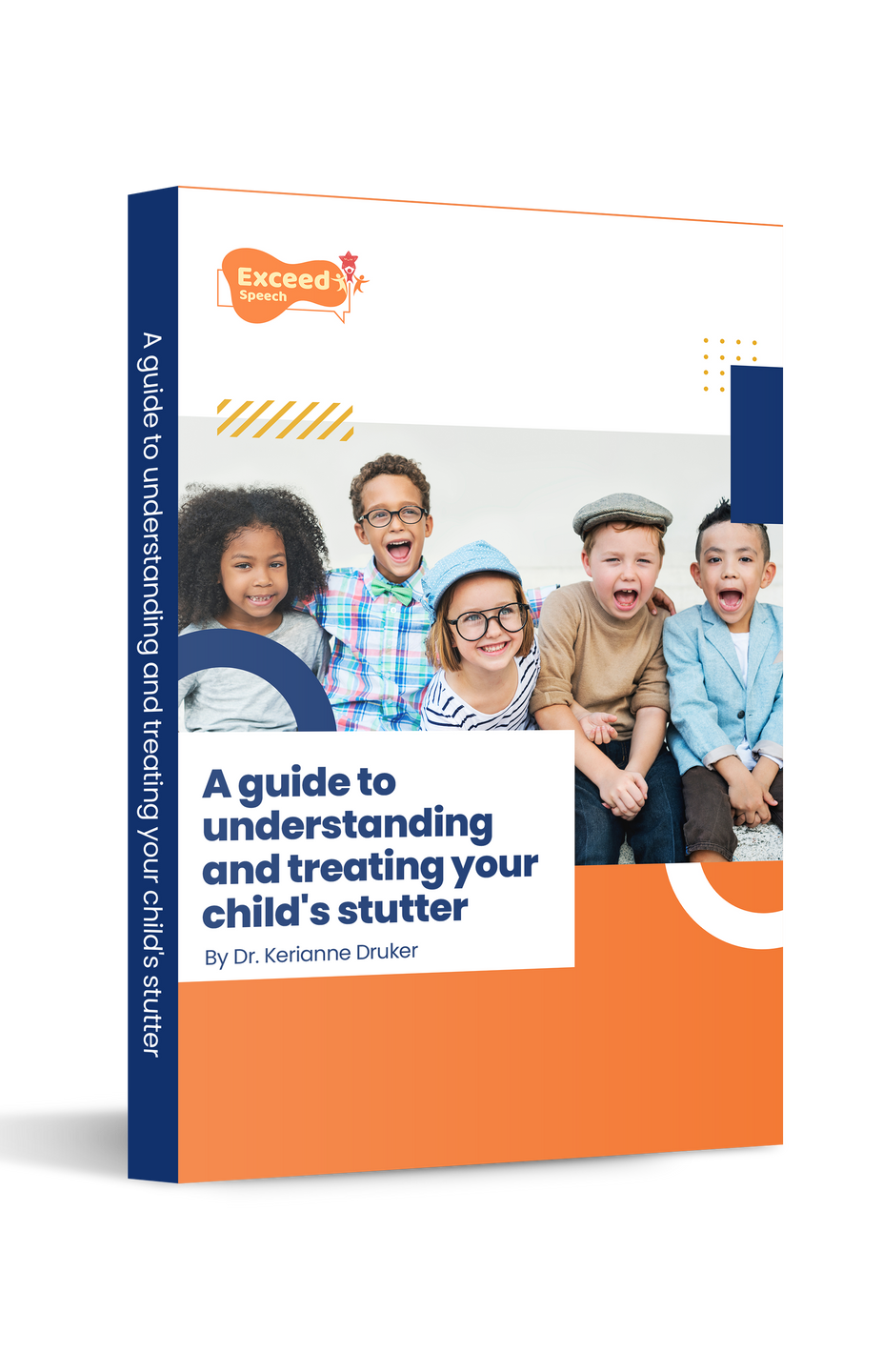Robust Theme
Dec 09, 2019 2020-04-08 7:40Robust Theme
What should I do if I think my child has started to stutter?

As parents, there are so many things we naturally worry about when it comes to our children’s development - speech and communication skills can definitely be high up there! This is because it’s so important for a child to communicate well, so they can develop confidence and make positive connections with others.
When young children learn to talk, of course, we can’t expect them to go straight from babbling… to speaking fluently, clearly and grammatically correctly. There are many phases of communication development that we expect children to step through, which ultimately transforms talking from less complex into adult like utterances. What is hard to figure out during this time is:
What is normal and expected as part of communication development… and what is a cause for concern or further investigation?
This article will dive into what to expect when it comes to “dysfluencies” or hesitations in a child’s speech.
As children’s language skills develop, it can be common for them to sometimes take longer to form a sentence with increased pausing, for example. Repeating short phrases (e.g., I want to, I want to) as they’re remembering and retelling more complex ideas and stories is also to be expected.
However when it comes to repetitions or hesitations that indicate stuttering, we do need to act quickly and effectively to ensure the child has the best chances of overcoming this problem. Without a comprehensive assessment with a Speech Pathologist who specialises in stuttering management, confirmation of whether or not your child’s speech hesitations are normal cannot be guaranteed. However, here are some red flags to look and listen out for:
- Repetitions of single words – particularly when the words are repeated multiple times (e.g., I, I, I, I)
- Repetitions of sounds or parts of words (e.g., m, m, mummy or ca, ca, can)
- Lengthening of sounds (e.g., lllllet’s go now)
- Stoppages or blockages of sound where the child appears to be physically stuck or “paused” when talking
- Any frustration related to talking
Children as young as 3 years old have been found to be aware of their stuttering and can start developing negative attitudes about their talking, and lose confidence as a result. These possible negative consequences of stuttering highlight how important it is for your children to get effective and prompt support if you do suspect they may be showing any signs of a stuttering problem.
Get in touch with Dr Kerianne Druker, a PhD qualified Speech Pathologist specialising in stuttering management, for a free 10 minute consultation to discuss your concerns, and for more information about whether your child’s dysfluencies are nothing to worry or should be investigated. Book now.

Free eBook
A guide to understanding and treating your child’s stutter
Take a sneak peak of what the Stuttering Toolkit has to offer, and learn about the treatment principles that have proven successful for more than 90% of children who stutter.
Get Free eBook

